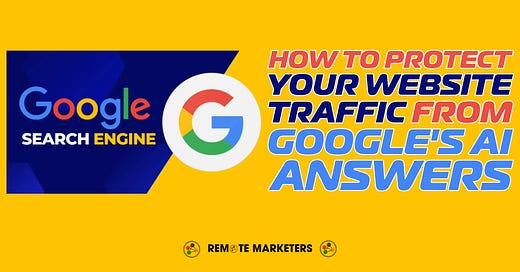In recent years, Google has been making significant changes to how it provides information to users.
Instead of just listing websites for a search query, it is now using artificial intelligence (AI) to directly answer questions.
This new "AI answer engine" has raised concerns about the future of websites and content creators.
The Main Issue
The main issue…




